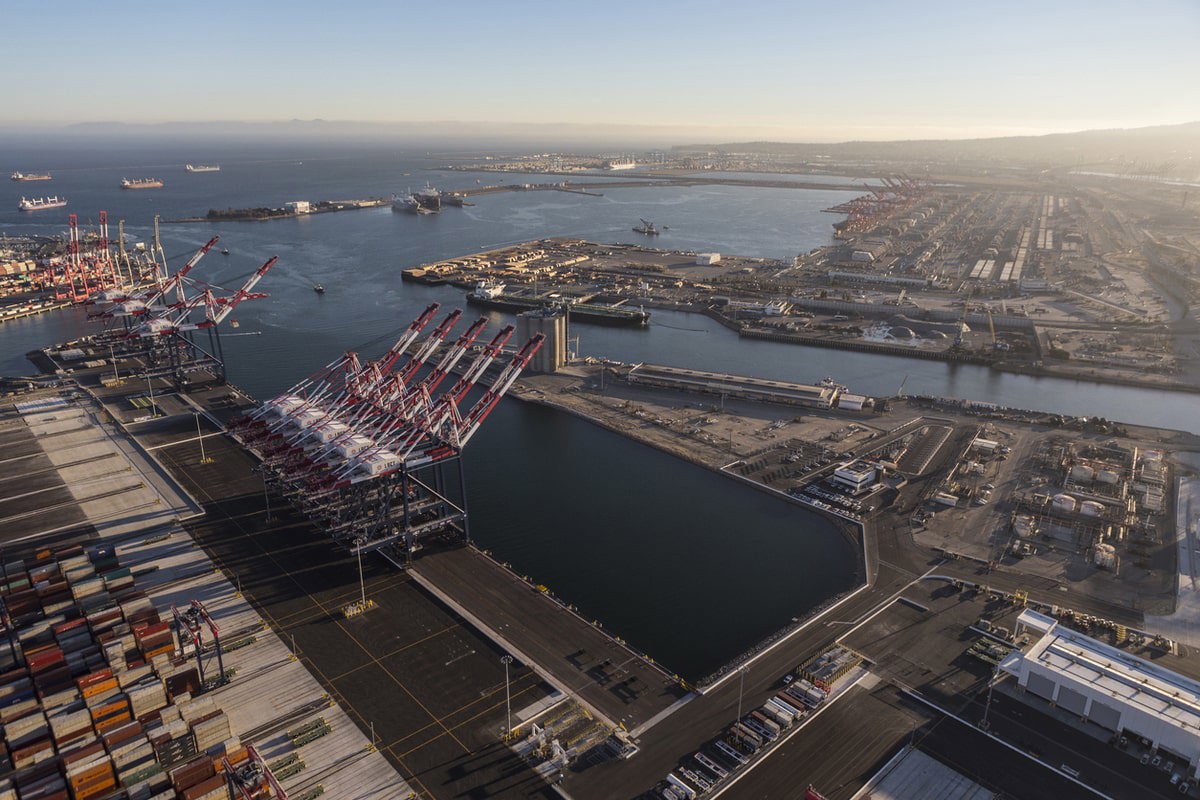US Congress members urge Biden to regulate maritime emissions
Members of the US Congress urged President Joe Biden to implement maritime-specific policy measures aimed at reducing greenhouse gas emissions from the shipping sector.
 PHOTO: Aerial view of the ports of Long Beach and Los Angeles in southern California, US. Getty Images
PHOTO: Aerial view of the ports of Long Beach and Los Angeles in southern California, US. Getty Images
A joint letter penned by Congresswoman Nanette Barragán and 15 other Congress members on 18 July urged the US President to issue “an Executive Order to spark innovation and open opportunities for decarbonizing the maritime sector and future-proof this critical component of our supply chains.”
The executive order should include “specific, time-bound actions” to reduce maritime greenhouse gas (GHG) emissions, the letter stated.
The maritime-specific measures can be included as part of the US government's zero-emission freight sector goal, the letter suggested. In April, the US government announced its first-ever national goal to achieve zero emissions in the freight sector, including shipping. The national goal supports the Biden administration's target of attaining net-zero emissions from the transportation sector by 2050, the White House explained.
The Barragán-led letter proposed that the executive order should include the following points:
- Set a goal-based fuel standard for all ships entering the US under the existing Clean Air Act.
- Use existing measures to reduce port emissions in US ports.
- Phase out and eventually ban the use of scrubbers in US waters.
- Enable the development of vessels capable of running on low- and zero-emission fuel.
The letter also called for a transparent emission “monitoring, reporting, and verification mechanism” similar to the European Union’s Monitoring, Reporting, and Verification (MRV) system for ships. This mechanism must require all vessels “to collect fuel consumption and emissions data from all ships that traverse US waters and use US ports” and report it to US authorities, it said.
These recommendations are similar to those suggested by US-based non-profit Pacific Environment and other climate-focussed organisations earlier in April. In addition to these recommendations, the climate organizations had specifically suggested that a potential goal-based fuel standard should require all vessels calling at US ports to reduce carbon dioxide-equivalent (CO2e) emissions by 20% by 2027, 45% by 2030, 80% by 2035 and 100% by 2040 on a well-to-wake basis.
By Konica Bhatt
Please get in touch with comments or additional info to news@engine.online






